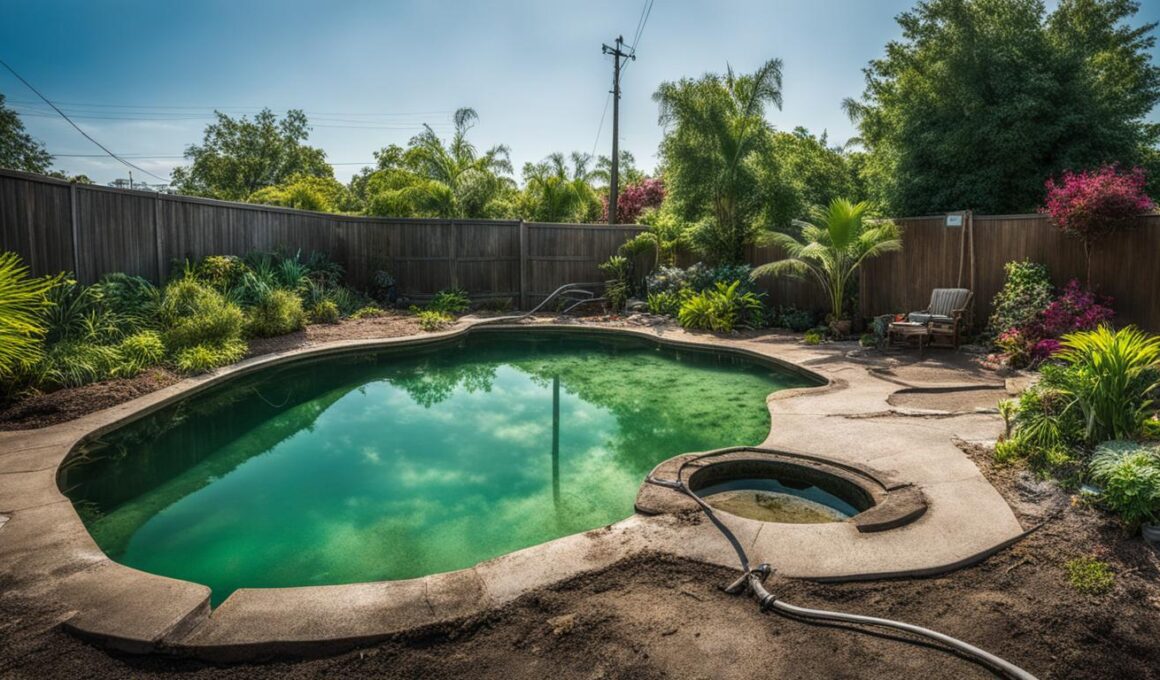Are you considering a saltwater pool for your backyard oasis? While saltwater pools have gained popularity in recent years, it’s crucial to be aware of the potential dangers and challenges they may pose. Understanding the drawbacks and implications can help you make an informed decision when it comes to the maintenance, health concerns, and overall performance of saltwater pools.
Compared to traditional chlorine pools, saltwater pools have both advantages and disadvantages. It’s essential to carefully evaluate the factors that may impact your experience and well-being before diving into the world of saltwater pools.
Advantages of Saltwater Pools
Despite the potential dangers and challenges, saltwater pools offer several advantages that make them an appealing option for many.
- No strong chlorine smell: Unlike traditional chlorine pools, saltwater pools produce far fewer chloramines, resulting in a more pleasant-smelling pool without the strong chlorine odor.
- Easier maintenance: Saltwater pools require less frequent addition of salt and their chlorine levels stay consistent throughout the swimming season. This makes maintenance easier compared to traditional chlorine pools.
- Lower maintenance costs: With consistent chlorine levels and reduced need for additional salt, saltwater pools have lower maintenance costs compared to chlorine pools.
- Gentle on skin, eyes, and hair: Saltwater is gentler on the skin, eyes, and hair, preventing issues such as dryness and irritation.
Additionally, saltwater pools do not strip colors out of swimwear, ensuring their longevity.
Can Bad Piston Rings Cause Damage to Salt Water Pools?
Bad piston rings can cause damage to saltwater pools if the engine leaks oil into the water. This can lead to contamination, increased maintenance, and potential damage to the pool’s components. Look out for common bad piston ring symptoms like excessive oil consumption, blue smoke from the exhaust, and loss of power.
Disadvantages of Saltwater Pools
While saltwater pools offer several advantages, it’s important to be aware of their disadvantages as well. One prominent drawback is the expensive upfront costs associated with installing a saltwater system. This includes purchasing specialized equipment like generators and salt cells, which can significantly increase the initial investment.
Another disadvantage of saltwater pools is the corrosive nature of salt. Over time, the saltwater can cause damage to pool equipment, fixtures, and even outdoor furniture. This can result in additional repair and replacement expenses, adding to the overall maintenance costs.
Maintaining a saltwater pool also requires more expertise compared to traditional chlorine pools. Not all pool technicians are experienced in working with saltwater systems, which can lead to challenges in finding the right professionals for maintenance and repairs. The lack of expertise may also result in higher repair costs.
Potential health concerns should also be considered when opting for a saltwater pool. Sodium and chlorine present in saltwater can be absorbed by the skin, which might lead to health issues for individuals with sensitivities or allergies. It’s important to consult with a healthcare professional to ensure a saltwater pool is a suitable choice for you and your family.
Finally, draining a saltwater pool can be difficult due to regulations and environmental concerns. Saltwater cannot simply be drained onto the ground or into regular drainage systems, which may require additional measures to properly dispose of the water, adding to the overall pool maintenance challenges.









